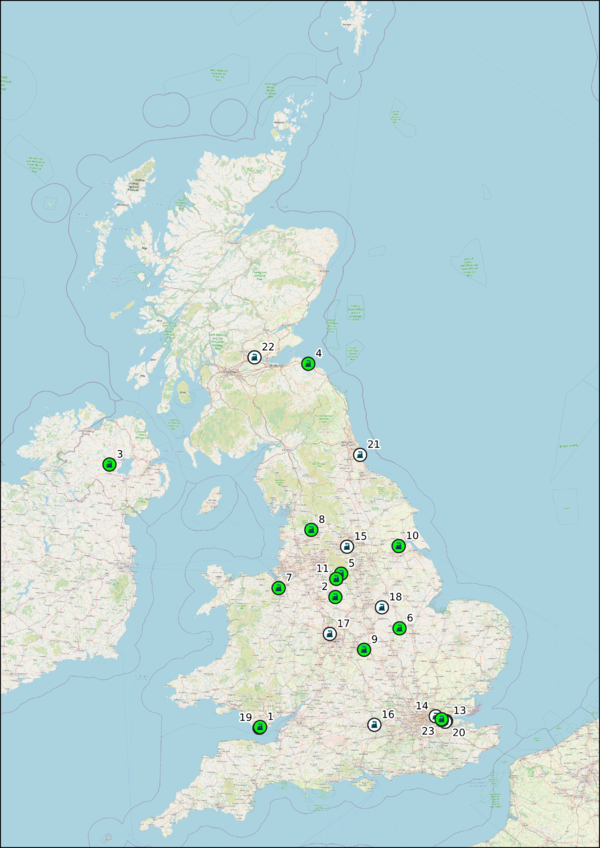Cement Kilns
The production of cement utilizes waste materials in two primary ways, firstly using specific Industrial Waste and Mining & Quarrying Waste (and waste from the kiln part of the process itself) as additives and replacement for traditional raw materials, and secondly as a fuel to substitute for the use of traditional fossil fuels in a cement kiln. In 2018 1,414,195 tonnes of waste was used as raw materials and fuel in the production of cement, with just over 43% of kiln thermal input replaced by Waste Derived Fuel. The five companies manufacturing cement together supplied 78% of the cement consumed in the market in 2018. [1].
The Process
List of Cement Kilns
More detailed information can be found by clicking through to the site-specific page:

